Decades of Dedication
Retirees from Lewis & Clark’s three schools reflect on the past and look to the future.
This spring, Lewis & Clark bid a fond farewell to several longtime faculty and staff who have touched generations of students.
-
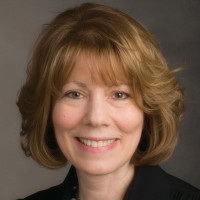
Paula Abrams
Edward Brunet Professor of Law
Years Served: 28
Path to Lewis & Clark:
In 1984, I became an adjunct professor at L&C while serving as executive director of the state Commission on the Judicial Branch, which was located at the law school at that time. In 1988, I was appointed visiting professor of law. I joined the full-time faculty in 1989.
Favorite courses to teach:
Many have been both fun and rewarding, including Constitutional Law, Reproduction and the Law, and International Art Law.
What you’ve enjoyed most about your work:
Pretty much everything! My scholarship has been a consistent source of challenge and gratification. I work with supportive colleagues who share my passion for teaching and scholarship. But I have found my time with students the most rewarding part of my work. It is their energy, curiosity, and love of learning that has made my work so gratifying.
Most memorable moment:
If I had to pick, I would say two: receiving the Leo Levenson Award for Excellence in Teaching, and being named the inaugural Edward Brunet Professor of Law. Both are great honors—the Levenson from students, and the Edward Brunet Professorship from an esteemed colleague and mentor.
Favorite place on campus:
Probably the law school amphitheater, the site of so many formal and informal gatherings, and the place where we all celebrate those rare sun days!
What you’ll miss:
My students and colleagues most of all. I also will miss the day-to-day drama of teaching constitutional law, a subject that encompasses some of the most challenging issues of our time.
What’s next:
Adventure!
Fun fact:
Too many things to pick one!
-
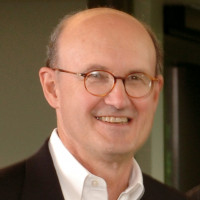
Edward Brunet
Henry J. Casey Professor of Law
Years Served: 44
Path to Lewis & Clark:
I quickly burned out while working as an antitrust attorney in a large law firm. A friend, Vince Blasi (now a faculty member at Columbia), advised me to look into teaching. Lewis & Clark was one of three schools that offered me a position—and the only one in an attractive location. Doug Newell started working here in 1971 and I began a year later. He led the charge to get the law school its national accreditation, and I joined him in that effort. It was one of the first major developments I had a hand in at the law school.
Favorite courses to teach:
All of them. Over the years, I taught Civil Procedure, Conflict of Laws, Antitrust, Administrative Law, Federal Courts, and Energy Law.
What you’ve enjoyed most about your work:
The super staff, sensational faculty, and terrific students.
Most memorable moment:
Being honored by my former students with an endowed professorship in my name is quite memorable, in addition to working on obtaining national accreditation for the law school. I do recall a few complaints from my students, as well. I taught a 9 p.m. civil procedure course in which students would sometimes fall asleep. I had a trick to keep them awake, though: I always maintained eye contact. At some point during class, I would say, “There are four people asleep at this moment.” Everyone would wake up and look around to see who the guilty parties were.
Favorite place on campus:
The lectern in Room 2 is where I want to be.
What you’re most proud of:
The great progress of Lewis & Clark Law School. I taught a bit at Emory School of Law, and in my mind, the two schools are no different in quality.
What’s next:
I’m not sure. I’ve been extremely lucky in my career. Retirement will be a challenge for me, but life is good.
Fun fact:
If I hadn’t gone into law, I would have pursued sales or acting, although I’d probably be a poor actor. I love sales. I like the idea of marketing a product and bringing out the best of it that I can. Professor Ed Belsheim, who taught at Lewis & Clark from 1972 to 1992, was the best salesperson I knew.
-
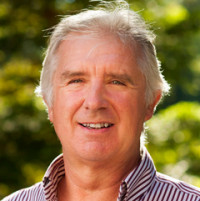
Peter Christensen
Professor of Rhetoric and Media Studies
Years Served: 31
Path to Lewis & Clark:
Twisted. After my BA at Dartmouth, I played in various rock bands until I decided to get serious. Not that music is unserious! Stanford PhD 1980, prof. at Penn State till 1985, moved west.
Favorite courses to teach:
Strangely, my research methods class.
Most memorable moment:
My convocation presentation of 2001, which included a great speech and a song I wrote that was performed by a band of alumni and faculty. Tremendous applause.
Favorite place on campus:
The rose garden.
What you’ll miss:
The view of Mount Hood from my office.
What you’re most proud of:
My 2001 convocation speech.
What’s next:
I’m not sure. Golf?
Fun fact:
I am a big weather geek.
-
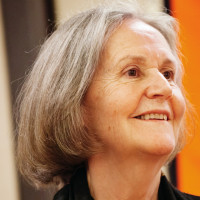
Joann Geddes
Director of Academic English Studies
Years Served: 35
Path to Lewis & Clark:
My first invitation to teach at L&C came from the graduate school in the late 1970s. During three summers, I taught for them and for the Institute for the Study of American Language & Culture (ISALC). In 1981, a position in the ISALC opened up, and the rest is history.
What you’ve enjoyed most about your work:
There can be no doubt that interaction and collaboration with students and colleagues on campus and around the world has been not only very enjoyable, but rewarding and enriching as well.
Most memorable moment:
It’s impossible to have one most memorable moment during my almost four decades at L&C. All of my greatest memories relate to interactions with students, colleagues, and the greater L&C community. I am very grateful for each and every one of the opportunities I’ve had.
Favorite place on campus:
Wherever the students are—and maybe the outdoor tennis courts.
What you’ll miss:
Almost everything and everyone. Almost…
What you’re most proud of:
I’m proud to have taken part, along with my dedicated colleagues, in building and rebuilding (ISALC to AES) very strong intensive English programs that have prepared international students for future study in the U.S. and brought global perspectives and diversity to L&C. This gave us the opportunity to establish the Dallaire Scholarship 10 years ago. It has warmed my heart to have joined with extraordinarily generous students, faculty, staff, neighbors, family, and alumni in making this goal a reality and welcoming three other university intensive English programs to join us in this effort. I also have had the opportunity to propose and assist in establishing our first overseas program in Vietnam and one of the first in the Soviet Union way back when.
What’s next:
I sincerely look forward to weeding my garden, studying Arabic and other languages, and working to expand the Romeo Dallaire Scholarship for students from Rwanda and other East African countries.
I’ll also be leading my seventh overseas study program for L&C as a faculty emerita in 2016. I’ve had the great fortune to coordinate programs in Costa Rica, the former Soviet Union, Argentina/Chile, Kenya/Tanzania, Australia, Vietnam, and soon, Morocco. I’m sure that I’ll stay connected with our network of alumni and friends around the world.
Fun fact:
Like most of the students with whom I’ve worked, I speak English as a second language. My first language is French. I grew up in a French Canadian community in New Hampshire.
-
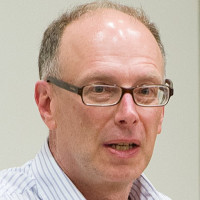
Martin Hart-Landsberg
Professor of Economics
Years Served: 38
Path to Lewis & Clark:
I was a math major at the University of California at Santa Cruz. I played a lot of basketball there. Early in my senior year, while shooting baskets at the gym, I met an economics professor who talked up the relevance of economics for understanding how the world works. It made sense to me, and I decided to pursue a graduate degree in economics. Initially, I thought I would become a researcher but, after serving as a teaching fellow, I found I also enjoyed teaching. My first job was at Trinity College in Hartford, Connecticut. I liked it there, but the Pacific Northwest called—my wife-to-be was doing her graduate work in Eugene, Oregon. After a year as a community organizer in Eugene—and two years teaching at Willamette University—a position opened up at Lewis & Clark. The economics department needed an immediate replacement for someone who had left to pursue work in banking. I was hired for a one-year position. That year, students voted me the best first-year professor, an award no longer given at the college, and I was chosen by the department for the tenure-track position. That was some 38 years ago.
Favorite courses to teach:
I enjoyed teaching all my classes, but my favorites were Economic Development, Radical Political Economy, and Principles of Economics. Development was special because of the strong international experiences and interests of Lewis & Clark students, and teaching them helped me sharpen my own thinking about development issues. Radical Political Economy and Principles were favorites because they allowed me to challenge students to think critically about the contradictions and class dynamics that drive our economic system and encourage them to develop their own abilities to become effective activists.
What you’ve enjoyed most about your work:
Most of all, I loved engaging students about important issues and helping them explore new ways of understanding contemporary economic, political, and social developments. Teaching also allowed me to test my own ideas and discover new areas for research. I also loved the freedom to pursue my own evolving interests. For example, midway through my time at Lewis & Clark, I shifted my teaching and research focus from Latin America to East Asia, especially South Korea and China. At the time, the mainstream of the economics profession was celebrating South Korea as a free-market miracle and model for Latin American countries. But as I started researching the South Korean experience, I found that the country’s growth had far more to do with its powerful state than free-market forces, and growth came at great social cost. So I began writing about the Korean experience. This work led to my being hired as a Korea consultant in 1993 by the American Friends Service Committee and to travel for them to both North and South Korea, Japan, the Russian Far East, and Northeast China in order to help the organization develop initiatives for promoting a more helpful U.S. foreign policy towards the two Koreas. Other international opportunities followed, including a research position at Gyeongsang National University in South Korea and consulting work with the Asia Monitor Research Center in Hong Kong on Asian labor conditions and organizing. I also greatly value the experiences I had traveling and learning as part of Lewis & Clark’s overseas study program; my wife and I led four groups, to Hungry, South Korea, Ecuador, and Ireland.
What you’ll miss:
I’ll greatly miss being around students who are eager to learn about the economy; conversations with colleagues about pedagogy; Lewis & Clark politics; and local, national, and international political-economic developments. Also, I’ll miss the intellectual discipline that comes from teaching.
What you’re most proud of:
I’m proud of many things. Over a 38-year career at Lewis & Clark, I’ve never stopped trying to challenge students and myself to understand and develop appropriate responses to critical economic issues. I’m proud of my scholarship, which includes six books and dozens of articles addressing the consequences of and alternatives to capitalist globalization; my efforts to strengthen faculty governance at Lewis & Clark College, including organizing for a faculty union and chairing and then reconstituting a strong faculty budget committee after a past administration had ordered it to disband; and my work promoting interdisciplinary education, in particular creating and directing the political economy minor and directing the Asian Studies program. And I’m also proud of my work with labor unions and community organizations in the U.S. and other countries, trying to help build strong and democratic movements for progressive change.
What’s next:
Life after Lewis & Clark gives me more time to work with Portland Jobs with Justice, where I am on the executive board and chair a committee involved in supporting unionization and a higher minimum wage. I also plan to explore the Pacific Northwest, visit my children in California and Wisconsin, and continue researching and writing about globalization, still with a focus on Asia.
-
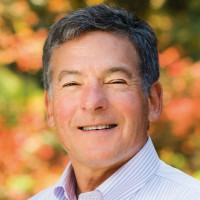
Steve Kanter
Professor of Law and Former Dean of the Law School
Years Served: 39
Path to Lewis & Clark:
After I graduated from Yale law school, my wife, Dory, and I decided to move to Oregon in the summer of 1971. While I was preparing to take the bar exam, I took some time to meet with a variety of people doing interesting things with law and public policy. During this process I visited the Lewis & Clark’s law school and met some of the faculty. While waiting for my bar exam to be graded, I took a short-term job with then City Commissioner Neil Goldschmidt. Once the bar results were announced, I became the fourth lawyer at the newly formed Metropolitan Public Defender, where I represented indigent criminally accused individuals. The law school gave me the chance to teach criminal procedure as an adjunct professor. I enjoyed teaching and deepened my contacts with the law school. I was hired in the fall of 1977 for a tenure-track position to teach in my preferred areas of criminal law and procedure and constitutional law. The rest, 39 eventful years later, is as they say is history.
Favorite courses to teach:
Constitutional Law, Criminal Procedure, Seminars in Free Speech, and Constitutional Theory.
What you’ve enjoyed most about your work:
Teaching and working with our students and my faculty and staff colleagues, who are altogether exceptional and wonderful groups of people.
Most memorable moment:
There have been many. I will select arguing as friend of the court the unconstitutionality of the 1978 Oregon death penalty before the Oregon Supreme Court 35 years ago with some then-current and former students in attendance in the courtroom.
Favorite place on campus:
We have a beautiful campus at both the law school and the undergraduate college. Two of my favorite places at the law school are: outdoors–the amphitheater on a pretty spring day with students and faculty sitting, chatting and working; indoors–the faculty reading room with its majestic multi-floor floor-to-ceiling windows looking out at the trees of Tryon Creek State Park.
What you’ll miss:
Our vibrant community and my colleagues, faculty, students, staff, and alumni.
What you’re most proud of:
The contributions of so many of our students to their communities after graduation, and my role as dean in helping our ongoing effort to build a rather unique law school that maintains the highest standards of intellectual rigor and open inquiry but in an environment that is unusually collaborative and supportive (especially for law schools) among faculty, students, staff, and alumni.
What’s next:
I never know for sure what the next chapter will be. Certainly it will include travel, hiking, reading, family, and friends. Oh, and we have a new puppy. As I turned 70 this past summer, I not only stepped down at the law school but also acknowledged that my days playing adult hardball baseball were over—though I might still be available for a cameo appearance. I wish everyone the very best, and thanks for all the great friendship and memories!
Fun fact:
I wrote one children’s book, The Bear and the Blackberry, and I helped lead the unsuccessful effort to bring major league baseball to Portland in the early 2000s.
-
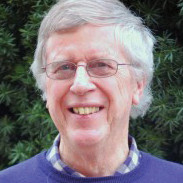
Greg Smith
Professor of Teacher Education
Years Served: 28
Path to Lewis & Clark:
The daughter of an L&C education faculty member has been a friend of mine since my mid-20s when we both lived in Southern Oregon. It was from her that I learned about small Quaker schools and their focus on community and social justice/peace education. Conversations with her led my wife and me to the John Woolman School, a Friends high school outside of Grass Valley, California. We taught there for six years, and that experience has been the inspiration for my work in place- and community-based education ever since. When a job opening at Lewis & Clark College was advertised in the Chronicle of Higher Education in the winter of 1993, and I saw that my friend’s father (whom I’d never met) was chairing the search committee, I figured this was probably the best opportunity I’d get to return to my home state and make a long-term career here. My hunch was right.
Favorite courses to teach:
Two are close to my heart. The first is a cross-disciplinary course I taught in the graduate school for 17 to 18 years entitled Envisioning a Sustainable Society. The other, the Theory and Practice of Environmental and Ecological Education, is one I taught every other year since 2000 to undergraduates. It has been a blessing to work with both groups of students.
What you’ve enjoyed most about your work:
The first thing that comes to mind is the opportunity to have conversations about important issues with students–be they environmental, cultural, or educational topics. The second is the way that my work has taken me all over the United States and to Europe, Japan, Australia, and New Zealand, where I have been able to meet with other people who share my concerns and passion about finding ways to support a transition to more just and life-sustaining cultures.
Most memorable moment:
Over the past decade or so, I’ve attended meetings of a group of progressive educators from around the U.S. called the North Dakota Study Group. One year, Grace Lee Boggs, then a 94-year-old social justice activist from Detroit, had been invited to be the lead speaker. Meeting her–a truly memorable event–led to a strong relationship with a center named after her and her husband, Jimmy, that focuses on community renewal and personal transformation. Grace passed away at age 100 last October. I had the chance to attend her memorial service–it attracted around 2,000 people and went on for five hours. She remains an important inspiration for my life and work.
Favorite place on campus:
The bridge across the ravine just below Templeton, especially now that the ivy has been cleared.
What you’ll miss:
The regular interaction with young people either on the cusp or adulthood or preparing to enter a field that for many is a deep calling.
What you’re most proud of:
My marriage and my sons who are making their way in the world with confidence, determination, and grace.
What’s next:
Time for parts of myself that have been on the back burner for much of my professional life: music, hiking/camping/paddling, gardening, volunteer work in the community, and writing in different genres than those I’ve pursued over the past 30 years.
Fun fact:
I’ve been practicing Zen Buddhism on a daily basis since I was in my early 20s.
-
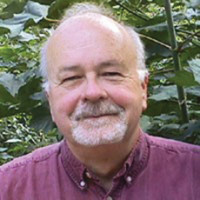
Herschel Snodgrass
Professor of Physics
Years Served: 30
We were unable to catch up with Professor Snodgrass, but we wish him well in his retirement.
Read an interview he did with thePioneer Log student newspaper.
-
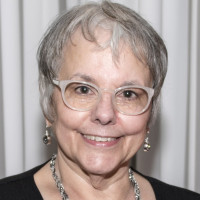
Martha Spence JD ’84
Associate Dean for Academic Affairs
Years Served: 35
Path to Lewis & Clark:
I had just finished my undergraduate degree at the age of 32, and I knew I wanted to go to law school. I saw a poster for Lewis & Clark with a picture of a lovely building with a dome, sitting atop a high bluff with a river below it, and a rainbow. Being in West Virginia at the time, and having not been much farther west than Ohio, I was intrigued with the idea of going to school in the West, just for the three years of law school. I knew I wouldn’t stay any longer than that because I was coming back to work in Washington, D.C., where I had lived and worked for nine years before going to college. When I got here, I was a little surprised to find that Terwilliger Boulevard did not lead to a high bluff overlooking a river, and the law school was not a small-domed building. It turns out that was Crown Point in the Columbia Gorge. Who knew? However, the law school was charming and beautiful in its own way, so I decided to stick it out. And then I never left. I became an assistant dean at the law school as soon as I graduated, and they haven’t been able to get rid of me. Between my three years as a student and 32 years as a law school administrator, I’ve now been here for 35 years. It was a great decision to come, and then to stay.
What you’ve enjoyed most about your work:
The variety. The most satisfying has been working with students one-on-one. However, writing and publishing the law school’s viewbook for many years was a delight because of the great people with whom I got to collaborate and the feeling we were producing something good. Helping the school transition to using computers in the registrar and admissions operation was challenging and a learning experience. And traveling to do admissions recruiting was always great.
Most memorable moment:
I have been lucky enough to have had several. In 32 years, there have been–happily–many high points. I must say that being named as a distinguished graduate in 2016 was amazing and was a definite high point.
Favorite place on campus:
I’m not sure if it counts as being on campus, but I love Tryon Creek State Park. Even when I’m inside the law school, the view of it makes you feel as if you are about to step into a forest cathedral. It’s both soothing and inspiring at the same time.
What you’ll miss:
The people. My brilliant and generous colleagues, and, of course, the students.
What you’re most proud of:
That so many people have let me know I was someone they felt they could count on to help when needed.
What’s next?
Some volunteer work; a little travel; even more concerts, plays, and movies than I already go to; and more reading. I also want to be a tourist in Portland. I like taking pictures and have loads of photos taken from my travel to other places, but none of Portland. So, I’d like to get to know the city better by walking the town and taking pictures.
Fun fact:
Until recently, I don’t think very people knew how much I like to sing.
-
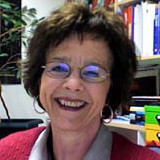
Wendy Woodrich
Senior Lecturer in Foreign Languages/Spanish Curriculum Director
Years Served: 34
Path to Lewis & Clark:
I had been a student at Lewis & Clark, majoring in Spanish and English. After completing my master’s in Spanish at UNLV, I returned to Oregon to work in social services, using my Spanish as a bilingual newspaper editor with a resource agency for Latinos in Portland, as a counselor for at-risk youth in Washington County, and as an instructor at PCC. When there was a temporary vacancy to teach at L&C, my former professors contacted me to fill in. When the temporary position became long term, I decided to study for my doctorate and teach at L&C at the same time.
Favorite courses to teach:
I’ve enjoyed all of them, from Spanish language classes to advanced literature. I like the variety of teaching language—being able to see students make incredible progress toward proficiency, use their language abilities in real contexts, and gain confidence in the process. I have liked sharing my love not only for the Spanish language, but also for the cultures of Spanish-speaking countries and my experiences traveling and living abroad. And although I love teaching literature courses, especially Latin American literature, I had the most fun during the 14 years I taught my course on Hispanic literature in translation, using Latin American narrative texts from the 20th and 21st centuries. I still have students who tell me years later that García Márquez blew their mind, or that the ending of a Cortázar story still intrigues them. I am grateful for having facilitated that exploration and discovery.
What you’ve enjoyed most about your work:
Since recently returned from another amazing overseas study program, this time in Cuenca, Ecuador, the first that comes to mind is the opportunity to lead seven such programs to Latin America and Spain. I took the first group of students to Costa Rica and Nicaragua—those students are now in their 50s! Three years later, it was Costa Rica and Guatemala. Back then, Central America was a war zone, and we were lucky not only to come through the experience unscathed, but also to get to know personally some of the actors in the conflict. Then it was Argentina, which gave me perspective on the difficult period from which that country was just emerging. My personal experiences and acquaintances from those early programs served as important background for my dissertation, which I was working on at the same time. Later, I led three programs to Seville, Spain—very different from Latin America but wonderful as well. Spain’s art, music, and history are fascinating, and Seville is an important point from which to observe the relationship between Spain and the Americas. And this last program in Ecuador was a wonderful return to Latin America. As in all the previous programs, I enjoyed the close relationships I was able to develop with students as I strove to be a guide and a mentor to them. It’s been a privilege to share my passion for intercultural exploration with several generations of students, and I have loved seeing how the experience has profoundly influenced each of them, whether they have become language teachers, or social workers, or bilingual lawyers, or even Spanish professors. I am grateful to have supported them in what for most has been the most memorable experience of their lives.
Favorite place on campus:
The library.What you’ll miss:
My wonderful colleagues. The Spanish section—and the foreign languages and literature department—has been my family for 34 years, and many of us go back together into the mists of time. We remember the mimeograph machine, we remember dancing at department parties, we remember the move first from McAfee to Huddleson and then from Huddleson to Miller. We remember the noise of pile drivers as we taught our classes during construction of the new library, we remember teaching in the basement of Copeland. We remember the mission planning process and our training sessions for the oral proficiency interview. We remember the December windstorm during finals week and the old language lab in Throckmorton. There were four years of Mellon grant-funded multimedia projects. We remember generations of language assistants and many department meetings—always cordial. We remember colleagues who have retired or passed away, and we remember interviewing and hiring the fabulous new colleagues who have made our department stronger. I am so grateful for this exceptional relationship.
What you’re most proud of:
That I have made it this far!
What’s next:
Writing, traveling, volunteering, finally getting fluent in French… and many more things I have yet to discover!
Fun fact:
I grew up in Southern Oregon, I dance flamenco (very poorly), and I am allergic to peanuts.
More L&C Magazine Stories
Lewis & Clark Magazine is located in McAfee on the Undergraduate Campus.
MSC: 19
email magazine@lclark.edu
voice 503-768-7970
fax 503-768-7969
The L&C Magazine staff welcomes letters and emails from readers about topics covered in the magazine. Correspondence must include your name and location and may be edited.
Lewis & Clark Magazine
Lewis & Clark
615 S. Palatine Hill Road MSC 19
Portland OR 97219

